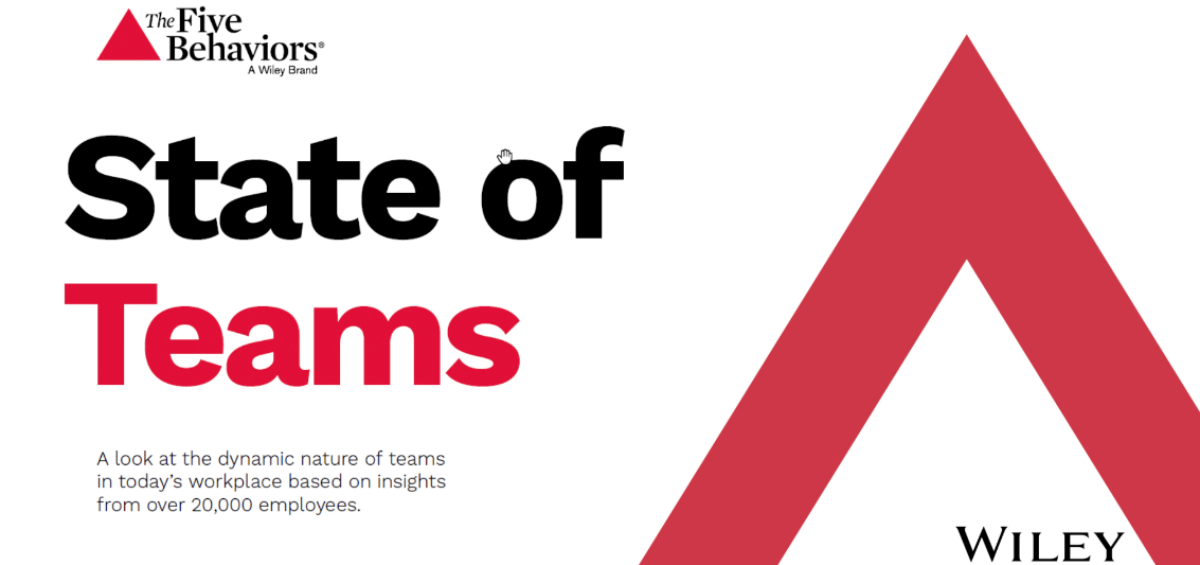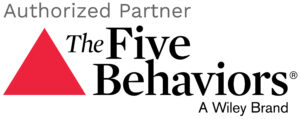The consequences of this skill gap are astounding for individuals, teams, and employers.
The inability of many individuals to meet the changing demands of their workplaces costs their employees—and themselves!—dearly. Not only do inefficient teams and poor teammates hinder organizations’ competitiveness, but they affect productivity and workplace culture, too. What’s more, inefficient teams create greater employee turnover due to lower job satisfaction.
Productivity nosedives:
Respondents report being on teams where a lack of cohesion (88%), an inability to hold each other accountable (80%), and a lack of trust (61%) all hurt their team’s productivity. That means the majority of teams are not performing at their full potential.
Time and money are wasted dealing with ineffective teamwork:
On average, employees spend about 7 hours per week—almost an entire workday—dealing with the effects of poor teamwork, whether covering for someone else not pulling their weight, discussing problematic team members with others, or redoing work because of unclear objectives.
Work culture is more toxic:
71% of respondents tell us they have been on teams where a lack of trust created a toxic work environment.
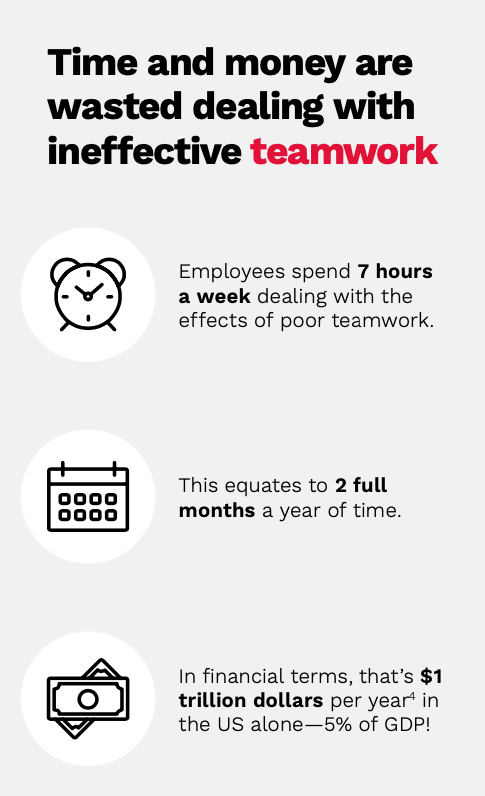
The words shown at right epitomize what respondents consider a “bad team member.” Employees who are lazy, selfish, or negative bring down teams’ and organizations’ morale. Unsurprisingly then, 9 in 10 people feel their organizational culture would improve if people were more effective teammates.
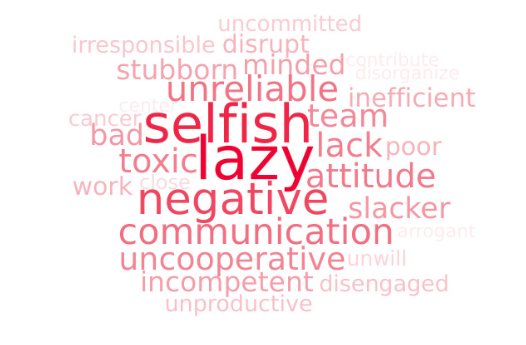
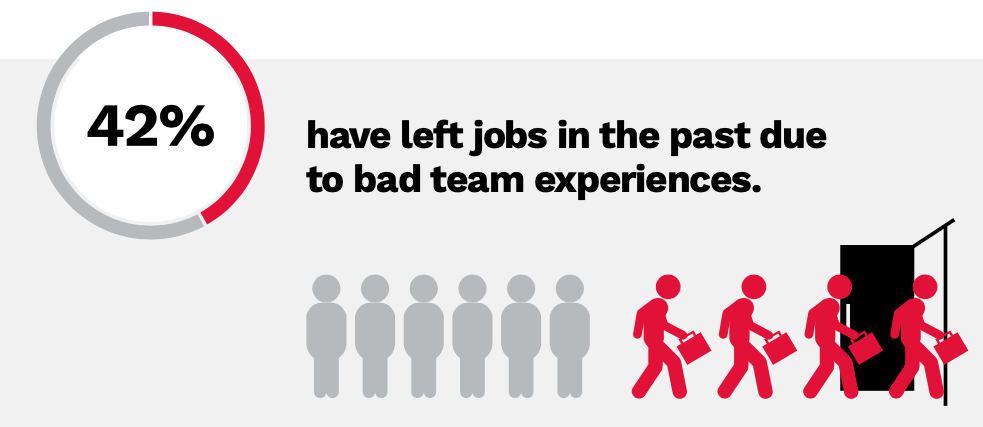
High stress means high turnover: 63% of respondents feel their job satisfaction would improve if their coworkers were better teammates. That’s because half of respondents tell us that working with difficult team members causes them the most stress at work. In fact, bad team experiences led a full 4 in 10 people to leave their jobs.
These results show—with crystal clarity— what happens when the building blocks of organizations do not work. And it means that effective teamwork matters more now than ever. Organizations must address this glaring gap in interpersonal skills to attract and maintain top talent and a competitive edge.
4 According to the Bureau of Labor Statistics, there are 118.3 million full-time workers in the U.S. in 2019. Their median weekly earnings were $936, yielding an hourly wage of $23.40. https://www.bls.gov/news.release/pdf/wkyeng.pdf

